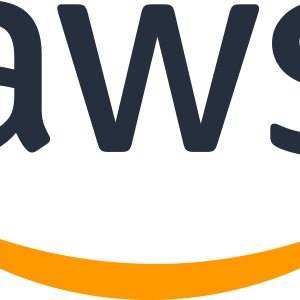Cyber-Dome: Combating Corporate Cyberattacks

STORY INLINE POST
Cyberattacks are becoming more frequent and wide-reaching as the corporate world transitions toward increased digitization. Mexico is ranked second for the most cyberattacks in Latin America. By 2020, almost 56 percent of cyberattacks were targeted to Brazil, 28 percent to Mexico and 10 percent to Colombia. This is due to Mexico’s geostrategic location and appealing economy, which make the country an attractive target for illicit cyber activities. Moreover, Mexico is the country that sends more spam to the network after Brazil and Colombia, meaning that jointly, the three countries represent 75 percent of spam in Latin America, hence Mexico’s high vulnerability in cybersecurity and cyber-defense.
In 2018, it was estimated that 83 percent of companies in Mexico were:
-
Victims of cyberattacks.
-
Victims at least once a year with a loss estimated at US$1.5 million per company to cybercrime.
-
Only 30 percent of these companies have a cybersecurity department or a protection and action plan.
Mexico is also one of the countries with the highest digitization growth, increasing its vulnerability to cyberattacks. According to SonicWall's 2021 cyberattack report, Mexico is the most attacked country in Latin America by ransomware, while suffering a 93 percent increase in Malware attacks during 2020. It has also been speculated that 81 percent of Mexican organizations will experience at least four cyberattacks per year, according to a recent Forrester Consulting study commissioned by Tenable. In the same study by Forrester, it is shown that 7 out of 10 cyberattacks on Mexican organizations are targeted remotely.
According to the 2015 Global Security Index & Cyberwellness Profiles Report of the International Telecommunications Union (ITU), among the vulnerabilities that Mexico faces are a lack of cybersecurity education, wrong system configuration, and outdated technology. Therefore, cybersecurity, innovation, and education are not only necessary for Mexico's safekeeping but essential factors in its social and economic development. Mexico needs to engage with its national, regional, and international partners to combine resources to ensure its security in cyberspace.
Consequently, Israel can be a key partner in developing innovation that can benefit and strengthen the cybersecurity of Mexico's environment as Israel is one of the world's largest centers of cybersecurity innovation. As an example, in 2021, a third of the unicorns in cybersecurity worldwide were based in Israel, making the country one of the three geographical regions that stand out in cyber, along with the San Francisco Bay area and Greater Washington, D.C
The Israeli-American cyber firm Check Point's 2022 Cyber Security Report 2021 saw a 50 percent increase in corporate cyberattacks from 2020. The high-profile hacks of SolarWinds and Colonial Pipelines, in particular, have brought renewed attention to cybersecurity in the professional realm. In the spring of 2022, the Israel National Cyber Directorate (INCD) and the Israeli Ministry of Communications announced new regulations and mandatory cybersecurity standards to combat this rise in digital attacks. Under the new guidelines, Israeli communications services are required to implement various measures to bolster their digital defenses, including conducting frequent vulnerability scans and applying protection standards for suppliers and contractors.
During the recent Cyber Week conference in Tel Aviv, INCD Director General Gaby Portnoy stressed the importance of proactive and innovative solutions for cybersecurity. Rather than merely mitigating attacks as they arise, Portnoy called for establishing a "Cyber-Dome," a comprehensive cyber-defense strategy utilizing new mechanisms for detection, analysis, and mitigation of threats. Notably, he presented gaps in security as potential opportunities for cyber firms to develop cyber secure-by-design solutions for recurring and emerging risks.
In particular, Portnoy emphasized the importance of cooperation between government regulators, the cybersecurity industry, researchers, and individual consumers to limit cyber threats. As cyberattacks arise from a multitude of sources, no single solution on its own could protect companies against attackers.
A key element of the multipronged cybersecurity strategy is a zero-trust approach to IT, which assumes that no user or device can be trusted until adequately verified. Utilizing two-factor authentication, access controls, and “micro-perimeters” to protect higher-sensitivity data, zero-trust is among the most effective methods of protecting against cyberattacks. Recognizing networks' vulnerabilities once they have been breached, the zero-trust model implements security checkpoints at various stages to identify and isolate breaches as they occur.
Israeli companies have developed various innovative solutions to prevent and combat cyberattacks. Below is a list of Israeli cybersecurity companies that are leading the charge in zero-trust and anti-breach technologies:
NanoLock is a zero-trust, device-level solution that prevents outsider, insider, and supply-chain attacks as well as human errors, regardless of the attack origin, cyber event, or exploited vulnerability. It accomplishes this all without affecting the device or the machine’s functionality and performance, with near-zero resource consumption, and with compatibility across both legacy and new devices and machines.
Hunters develops security operations solutions by combining data engineering, security expertise, and layers of automation to expedite decision-making, helping security teams become attack-ready. Hunters incorporates how attackers think and act into a platform that helps security operations see and stop attacks at their root. Hunters XDR is a purpose-built, turnkey security data and analytics platform, providing cloud-scale access to telemetry sources across the entire attack surface, coupled with automated event prioritization, correlation, and investigation.
Illusive Networks uses deception technology to stop cyberattacks by detecting and disarming attackers, destroying their decision-making processes, and depriving them of the means to move laterally toward attack targets. Illusive’s deceptions are designed to eliminate high-risk pathways to critical systems, force attackers to reveal themselves early in the threat life cycle, and capture real-time forensics that accelerate incident response.
XM Cyber is a global leader in attack-centric risk prioritization, which is also known as risk-based vulnerability management (RBVM). The XM Cyber platform enables companies to rapidly respond to cyber risks affecting their business-sensitive systems by continuously finding new exposures, including exploitable vulnerabilities and credentials, misconfigurations, and user activities.
CYE brings a fact-based approach to organizational cyber-defense and takes the guesswork out of cyber-risk management. Utilizing data, numbers, and facts, CYE helps security leaders know what business assets are at risk and execute cost-effective remediation projects for optimal risk prevention.
Cybereason provides future-ready cyberattack protection that unifies security from the endpoint, to the enterprise, to everywhere the battle moves. The Cybereason Defense Platform combines the industry’s top-rated endpoint and extended detection and response, next-generation antivirus, and proactive threat hunting to deliver context-rich analysis of every element of a malicious operation.
Finally, we invite you to join us at the 7th International Homeland and Cybersecurity Conference and Exhibition from Nov.27-29, 2022, in Israel. For more information, please contact the Israel Economic Office in Mexico.
Sources: StartUpNation, Reuters, Forbes, VentureBeat, I24NEWS, Gov.il, Check Point, The Jerusalem Post, Nasdaq, Wilson Center























